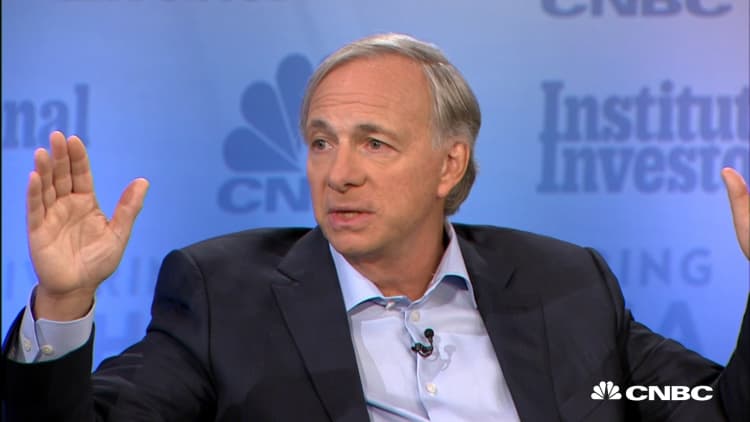Ray Dalio founded Bridgewater Associates out of his two-bedroom apartment in New York City in 1975, right after he earned his MBA from Harvard Business School. Bridgewater is now the largest hedge fund in the world, managing around $160 billion for more than 350 clients.
Although Dalio himself has seen massive success — and has become a billionaire in the process — he says he never set out to get rich.
"When I look back on whatever my past has been and the successes, my greatest rewards have been the people and the relationships that I've had," he tells Stephen J. Dubner on an episode of the Freakonomics Radio podcast. "The money has been an accident. I mean, it's a good accident, but I happened to be playing a game that I love."
Dalio built his company from the ground up by focusing on relationships with his peers and employees, which he considers fundamental to success.

He describes Bridgewater as "an idea meritocracy in which the goals are meaningful work and meaningful relationships — they're equally important and they're self-reinforcing." To foster these kind of relationships, the company operates on a system of "radical truthfulness and radical transparency."
Dalio calls this "the magic formula for success," because telling the truth is a form of "tough love" that lets people know that you genuinely care about them.
That said, he realized the negative effect a policy of honesty could have in 1993 when three of Bridgewater's senior executives invited him to dinner. They wanted to discuss how the way he treated employees was affecting company morale, he explains in his book, "Principles: Life and Work."
They brought up a few of Dalio's shortcomings, noting that he had a habit of saying things that made employees feel incompetent and belittled and that brought pessimistic energy into the company.
"That hurt and surprised me," he writes. "I never imagined that I was having that sort of effect."

From that point on, Dalio decided to put some work into figuring out how transparency can be both productive and encouraging. By 2006, he had pieced together a list of around 60 "work principles" that would help managers successfully employ this system on their own teams.
But the motivation behind pushing for transparency never changed: "The more caring we gave each other, the tougher we could be on each other, and the tougher we were on each other, the better we performed and the more rewards there were for us to share," he writes.
From there, Bridgewater continued to grow and thrive as Dalio worked to refine the company's unique culture. And, as he sees it, the money followed.
Don't miss: Warren Buffett and Ray Dalio agree on what to do when the stock market tanks
Like this story? Like CNBC Make It on Facebook!


